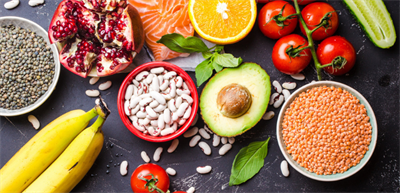Have you ever noticed how much better you feel after a good meal before a workout? Or how sluggish do you get if you haven’t eaten enough? Well, that’s the power of sports nutrition! It’s like putting the right fuel in your car – the right food choices can make a huge difference in your athletic performance, energy levels, and recovery. There’s no one-size-fits-all answer to the question of the best collagen supplement, as the best one for you will depend on your individual needs and preferences.
This article will be your one-stop shop for understanding sports nutrition. We’ll break down the science into easy-to-understand bits and offer practical tips to help you fuel your body for peak performance, whether you’re a weekend warrior or a seasoned athlete.
Nutrition and Exercise:
Just like a car needs gasoline to run, your body needs food for energy. When you exercise, your body burns calories (energy) from the food you eat. The type and amount of food you consume impacts how long you can exercise, how hard you can push yourself, and how quickly you recover afterward.
The Athlete’s Diet:
Think of your diet as the foundation of your athletic performance. A well-balanced diet includes a variety of foods from all food groups:
Carbohydrates: Our main source of energy, carbs come in two forms: simple (sugars) and complex (starches). Athletes need plenty of complex carbs like whole grains, fruits, and vegetables to fuel their workouts.
Protein: The building blocks of your muscles, protein powder is essential for muscle repair and growth. Lean protein sources like chicken, fish, beans, and tofu are great choices for athletes.
Fats: Don’t fear healthy fats! They provide energy, promote cell function, and help with nutrient absorption. Choose healthy fats like avocado, nuts, and olive oil.
Micronutrients: Vitamins and minerals are crucial for many bodily functions, including immunity and energy production. Athletes need a variety of vitamins and minerals from fruits, vegetables, and whole grains.
Pre-Event Meal:
The pre-competition meal is like priming your engine for a race. Aim to eat 2-3 hours before your event. Choose a meal rich in complex carbs and a moderate amount of protein. This will provide sustained energy for your competition.
Here are some great pre-event meal ideas:
- Oatmeal with berries and nuts
- Whole-wheat pasta with lean chicken and vegetables
- A fruit and yogurt smoothie with a protein scoop
Eating During Exercise:
For long-duration activities (over an hour), consider fueling your body during exercise. This helps maintain energy levels and prevent bonking (hitting the wall).
Here are some good options for mid-exercise snacks:
- Sports drinks (for electrolytes)
- Gels or chews (easy-to-digest carbs)
- Bananas or apples (natural source of carbs)
Eating After Exercise:
The post-workout window (30-60 minutes after exercise) is a prime time for muscle repair and recovery. Aim to consume a combination of carbs and protein to replenish glycogen stores (energy) and rebuild muscle tissue.
Using Nutritional Supplements
Sports supplements can be a tempting shortcut to improve performance, but it’s important to understand their limitations.
Pros:
- Convenience: Supplements can be a convenient way to get specific nutrients, especially for athletes with busy schedules or dietary restrictions.
- Targeted benefits: Some supplements may offer specific benefits for certain athletes. For example, creatine can enhance muscle strength and power in certain types of training.
Cons:
- Not a magic bullet: Supplements don’t replace a healthy diet.
- Potential side effects: Some supplements can cause side effects, so it’s crucial to consult your doctor before taking any.
- Regulation: Supplements are not as strictly regulated as medications, so quality and effectiveness can vary.
When might supplements be helpful?
- Athletes with specific dietary needs (e.g., vegetarians needing additional protein)
- Athletes with diagnosed deficiencies (e.g., iron deficiency)
- Athletes in high-training periods struggling to meet daily nutrient needs (under professional guidance)
Basic Sports Nutrition Advice:
Focus on whole foods: Build your diet around fruits, vegetables, whole grains, and lean protein sources.
Stay hydrated: Drink plenty of water throughout the day, especially before, during, and after exercise.
Plan your meals: Don’t leave fueling your body to chance. Plan your meals and snacks, especially before and after training.
Listen to your body: Pay attention to how you feel during and after exercise. Adjust your food choices based on your individual needs.
Seek professional guidance: If you have specific questions or concerns about your sports nutrition, consult a registered dietitian or sports nutritionist. They can develop a personalized plan to optimize your performance.
Conclusion:
Sports nutrition is about making informed choices about what you put on your plate. By understanding how food affects your body and fueling your workouts strategically, you can maximize your performance and reach your athletic goals. Remember, a well-balanced diet is the foundation of a healthy athlete. If you have any underlying health conditions, always consult with your doctor before making significant changes to your diet or starting any new supplements.
Disclaimer: This information is for educational purposes only and should not be taken as medical advice. Always consult with your doctor or a registered dietitian before making any changes to your diet or exercise routine.
Keep an eye for more news & updates on Nycitypaper.com!
